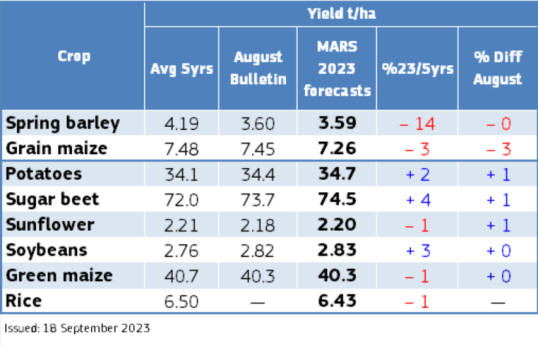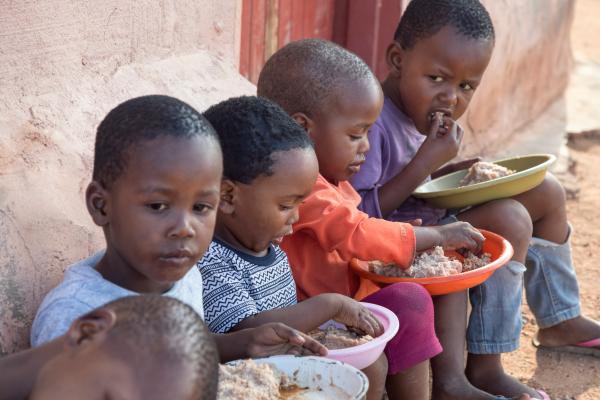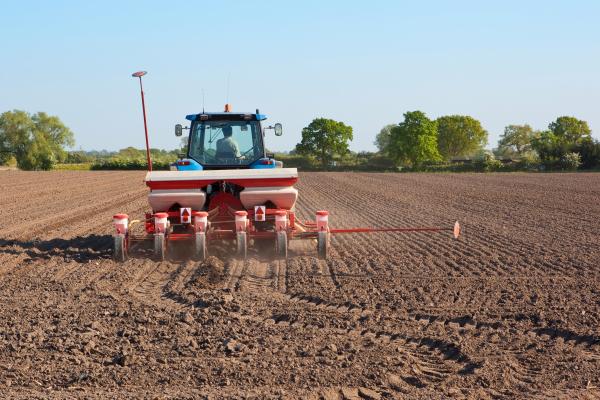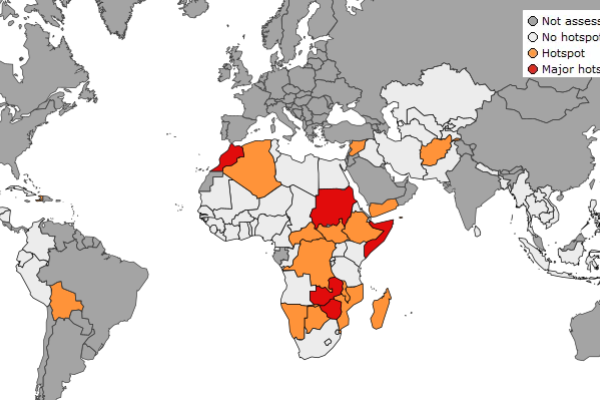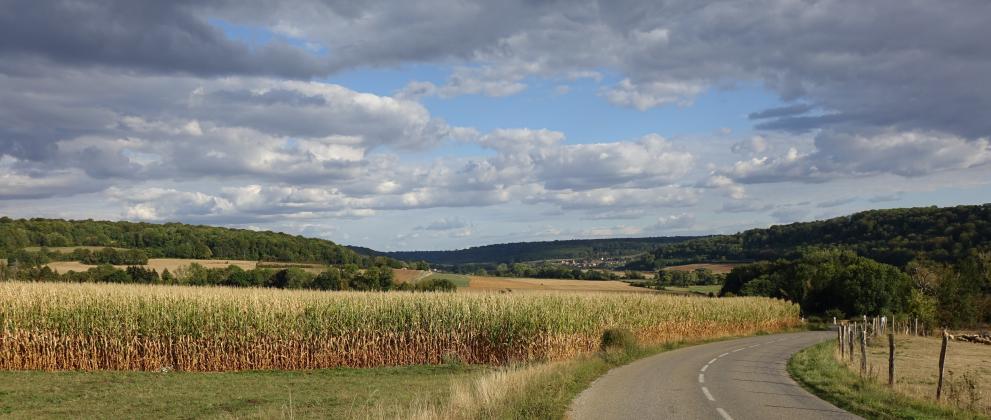
The downward revision for grain maize is mainly due to a worsened outlook for summer crops in Romania, Bulgaria, and Greece. For sunflowers, downward revisions of the yield forecasts for these countries were offset at EU level due to upward revisions of the yield forecasts for France and Hungary.
Persistent drought negatively impacts yield formation in Romania and Bulgaria
Drought conditions persisted in northeastern and southeastern regions of Romania, and extended into Bulgaria, with heatwave episodes further compromising yield formation in maize and sunflower crops, particularly in the region along the Danube River in both countries.
Heatwaves cause damage to crops in parts of France and Italy
Distinct heatwaves in the second half of August negatively affected the outlook for grain maize in part of eastern France (without affecting the outlook at national level), whereas similar conditions in northwestern Italy mainly impacted grasslands and maize.
Damaging floods in Greece and Slovenia
In Greece, unprecedented floods resulted in a complete loss of summer crops in the Thessaly region, which accounts for 22% of the national production of grain maize. In Slovenia, following the floods reported in the August edition of the Bulletin, well above-average rainfall, including events exceeding 100 mm in some areas, led to additional flooding in fields with already saturated soils.
Continued overly wet conditions in many parts of central and northern Europe
Rain surplus continued to affect many parts of central and northern Europe, with negative impacts on summer crops (mainly due to increased disease pressure), as well as on the grain quality and yields of winter and spring cereals that could not be harvested on time. The sowing of winter rapeseed was also delayed in several of these regions.
Further information
JRC MARS (Monitoring Agricultural Resources) Bulletins
The latest information about global agricultural production hotspots for countries at risk of food insecurity is available on the JRC’s ASAP (Anomaly hot Spots of Agricultural Production).
Details
- Publication date
- 18 September 2023
- Author
- Joint Research Centre
- JRC portfolios

